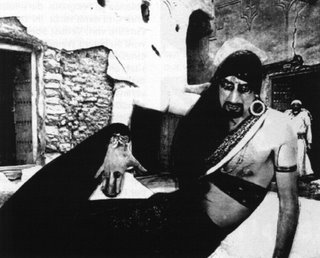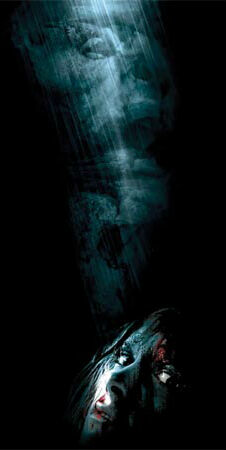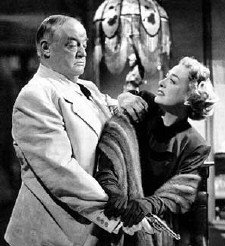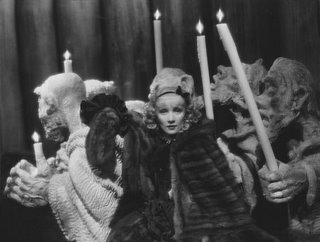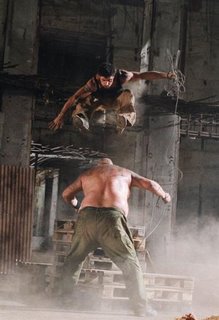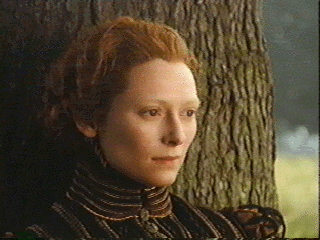Limp Nostalgia and a Soulless look ahead: The Poverty that is Singer's Return

My mother raised me to understand the workings of our world with one simple aphorism. "Why," she would say "does a dog lick his balls? Because he can." Indeed. In the aftermath which followed the rather favorable reviews of Peter Jackson's King Kong, countless viewers lamented Kong's seemingly endless need for CGI meanies and pseudo-cinematic digital wizardry from T-Rexs and large, man-eating monsters which resembled uncircumcized penises to an attention deficit camera which flits from building to building, enough to make David Fincher motion sick. Having not seen the film, I cannot speak to its meandering digital lavishes. I can only respond to what I had heard/read. Halfway through director Brian Singer's newest incarnation of our man of steel, Superman Returns, I leaned over to the person who accompanied me to the screening and asked "is this what King Kong was like?" I was met with a sober nod.
Much ink has already been spilt (by myself, even) on why we need a Superman. What necessitated his return? Things are bad, yes, but are we, as a people, still capable of believing in a man who descends from the sky in tights to stop falling airplanes and catch crumbling statues? After watching the film, I'm still not certain that we could. We are to understand Singer's Metropolis as a present day city, yet as an homage to the previous films and comics, (which starts with the Seventies style opening credits) our contemporaries don 50's period dress. Basically, though people yammer on their cell phones and watch plasma TV screens, everyone looks as though they've wandered out of an era which understands the modernism which yielded Superman far greater than we ever could. A less jaded time. So much so that I am hard pressed to understand Superman Returns as being a completely contemporary film. Sure there's plenty of terrorist footage on Martha Kent's television, but there's something to be said about the fact that that same television is from the 70's.
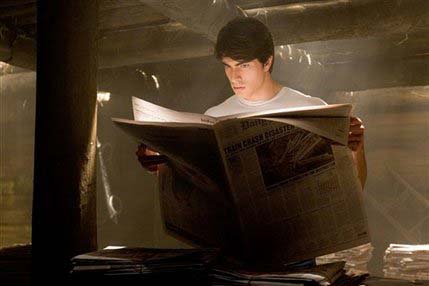 Cast in the metallic glow that has come to be Singer's trademark sheen, not a moment passes when you aren't aware of the film's artificiality. There are certainly no characters to convince you otherwise. Superman(Brandon Routh, who in a creepily overt act of cinematic narcissism, resembles Singer) looks like a fuck toy just blown in out of some WeHo workout room. Slight on charisma and heavy on coiffure, he is hardly the strapping man from the comics (a group congregated as I left the theater joked taht he should have been called Supercurl, as, having plummeted from space to land in Central Park, his body was critically wounded but his curly lock of hair was perfectly in tact). But even more deficient is Bosworth's Lois Lane. Missing all of the complexities (and masculinities) of Miss Margot Kidder, Bosworth's vacant femininities do nothing but highlight Routh's. And that's the last thing we look for in our Steely saviors.
Cast in the metallic glow that has come to be Singer's trademark sheen, not a moment passes when you aren't aware of the film's artificiality. There are certainly no characters to convince you otherwise. Superman(Brandon Routh, who in a creepily overt act of cinematic narcissism, resembles Singer) looks like a fuck toy just blown in out of some WeHo workout room. Slight on charisma and heavy on coiffure, he is hardly the strapping man from the comics (a group congregated as I left the theater joked taht he should have been called Supercurl, as, having plummeted from space to land in Central Park, his body was critically wounded but his curly lock of hair was perfectly in tact). But even more deficient is Bosworth's Lois Lane. Missing all of the complexities (and masculinities) of Miss Margot Kidder, Bosworth's vacant femininities do nothing but highlight Routh's. And that's the last thing we look for in our Steely saviors.
But all of the blame cannot be solely heaped upon our leads (though more charismatic casting would have helped a great deal). The writing is dimwitted and the direction painfully tactles. Not a single shot goes by without an educated viewer knowing, full well what will come, not merely in the following scene, but the next twenty minutes. From small touches (Lane's engagement ring - to someone other than Supe - is the same color as the emerald kryptonite which debilitates Superman) to gargantuan ones (the same paper which holds news of Superman's return also informs us of a precious Gems show at the Met. Hmmmm...) the plodding obviousness of the action becomes tediously debilitating. Though not as debilitating as the Rube Goldberg-esque action sequences which encompass the film.
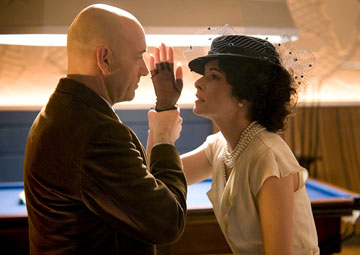 Taking a cue from Kong, not only must Superman save the day, he must save it from calamity after calamity after calamity within a matter of moments. A tremor shakes Metropolis. Someone falls off a roof. Superman catches him. Then a sign falls. Superman catches that. Someone drops a cigarette which ignites a broken gas main. Superman must stop the flames before it hits the supply source, in time to return to his newspaper and catch the statue which is about to crush his sweet fatherly boss (Frank Langella). The absurdity of all of this CGI mayhem never goes unnoticed. Nor is it coreographed to be as fun as any offering by the likes of Besson. Spacey's Lex Luthor is fun and his lady in crime Parker Posey's Kitty have camp fun with their roles, but you slowly watch them realize they got the short end of the stick. Greed has replaced the darker, more brooding evilness of the nineties, and so they stumble about resembling more the nouveau Riche than any real badies.
Taking a cue from Kong, not only must Superman save the day, he must save it from calamity after calamity after calamity within a matter of moments. A tremor shakes Metropolis. Someone falls off a roof. Superman catches him. Then a sign falls. Superman catches that. Someone drops a cigarette which ignites a broken gas main. Superman must stop the flames before it hits the supply source, in time to return to his newspaper and catch the statue which is about to crush his sweet fatherly boss (Frank Langella). The absurdity of all of this CGI mayhem never goes unnoticed. Nor is it coreographed to be as fun as any offering by the likes of Besson. Spacey's Lex Luthor is fun and his lady in crime Parker Posey's Kitty have camp fun with their roles, but you slowly watch them realize they got the short end of the stick. Greed has replaced the darker, more brooding evilness of the nineties, and so they stumble about resembling more the nouveau Riche than any real badies.
What could have been an interesting investigation in our cultural needs turned into one more excuse to blatantly flash the capabilities of our visual technologies. All of this without really shedding the shimmer of its computer fabrication process. Just going to prove, yet again, why they unearthed this icon in the first place, well aside from the box office proceeds. Because they can.



